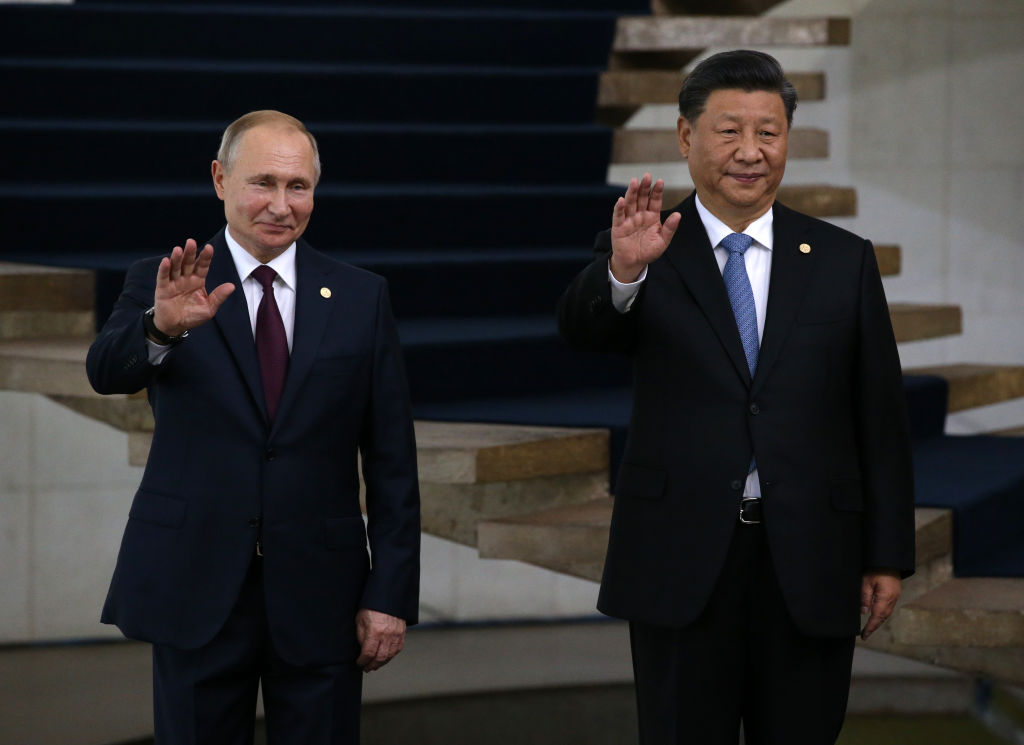ADF STAFF
Disinformation campaigns seeking to manipulate African information systems have increased nearly fourfold since 2022.
That is according to the Africa Center for Strategic Studies (ACSS), which linked disinformation campaigns to increased violence, support for coups, expanded anti-Western rhetoric and the spread of confusion about health care. These campaigns also work to erode confidence in traditional media sources.
Nearly 60% of disinformation campaigns in Africa are linked to countries outside the continent. The efforts, aided by emerging technology, are mostly driven by Russia, although China, Qatar, Saudi Arabia and the United Arab Emirates also push false narratives as they seek to spread their influence. Such contrived narratives are flourishing as Africa now has more than 400 million active social media users and 600 million internet users.
Of the 23 current transnational disinformation campaigns in Africa, 16 are sponsored by Russia, which has also deployed thousands of mercenaries to conflict zones. Two prominent disinformation influencers connected to Russia have a combined social media following of more than 28 million users, according to the ACSS.
“Russian fake news is produced on an industrial scale here,” Abdoulaye Guindo, the coordinator of Benbere, a fact-checking website based in Mali, told The New York Times newspaper. “The prowess of pro-Russian accounts is undeniable.”
In Mali, a Bamako-based radio station now broadcasts a Russian news podcast every evening.
“This is Moscow’s way to expand across Africa,” Séga Diarrah, a Malian journalist, told the newspaper. “With mercenaries and media outlets.”
Almost 40% of recorded disinformation campaigns on the continent are in West Africa, with Russia accounting for about half of them. One animated online video depicted a Russian mercenary joining West African Soldiers to defeat a horde of invading French zombies. Russia has deployed thousands of mercenaries to support friendly African governments and mine for gold and other natural resources.
“We’re facing a juggernaut,” Gen. Pascal Ianni, a French military official in charge of countering Russia’s disinformation operations in West Africa, told The New York Times. Russia has also inundated the Sahel region with disinformation efforts for years, especially Burkina Faso, Mali and Niger. Russia first promoted, then applauded, when military leaders overthrew the governments in the three countries. After the October 2022 coup in Burkina Faso, for example, disinformation networks connected to Russia’s Wagner Group sought to stoke rumors of a coup in Niger.
Niger’s military takeover came in July 2023. Russian disinformation efforts praised the coup as a boon for Nigeriens and encouraged the violent suppression of pro-democracy demonstrators in Niamey, while claiming the coup was an expression of popular sovereignty.
Two prominent French news outlets have been suspended in Mali and Burkina Faso, where leaders aligned with Russia have expelled French reporters. On October 8, Burkina Faso suspended Voice of America’s broadcasts for three months over its coverage of militant attacks in the country and neighboring Mali, according to The Associated Press.
These type of actions “have created space for media favorable to a pro-Russian narrative,” Reporters Without Borders said in a recent study. Other Russian messages have garnered support for its war with Ukraine and led to mistrust of efforts to fight malaria.
The ACSS report found that African countries that uphold presidential term limits are less exposed to foreign-sponsored disinformation campaigns. These democratic countries currently average 1.5 disinformation campaigns compared to an average of more than three campaigns for countries without term limits.
“This underscores the common aim of foreign disinformation to prop up authoritarian actors,” ACSS analysts wrote.
The New York Times also found evidence of Chinese companies helping spread Russian content on the continent. StarTimes, a Chinese media and satellite television provider, has made the Russia Today, or RT, channel available even as other companies dropped it.
According to Kenton Thibaut, resident China fellow at the Atlantic Council’s Digital Forensic Research Lab, China’s foreign propaganda efforts have shown rapid growth for years. In Zimbabwe, where China supports the ruling political party, Zimbabwe African National Union-Patriotic Front (ZANU–PF), state-owned newspapers are perceived as highly supportive of Beijing.
The state-controlled Zimbabwe Herald newspaper produces anti-Western propaganda that China supports, such as spreading narratives that the North American Treaty Organization expansion caused the war in Ukraine and that Western criticism of Chinese human rights policies is inaccurate.
Chinese state media also uses Herald stories in its own content, often depicting Chinese narratives as original reporting from Zimbabwe. Chinese state media content is also disproportionately used in local news, making it difficult to distinguish what is state propaganda, content from news-sharing agreements or independent news reporting, according to Thibaut.
“In the case of Zimbabwe, China provided political cover for ZANU-PF to crack down on journalists and civil society actors by spreading a narrative that claimed opposition figures were supported by foreign powers seeking to undermine the government,” Thibaut wrote.

